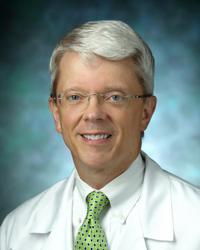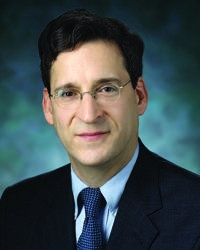Research Lab Results
-
Spine Outcomes Research Center
The Spine Outcomes Research Center is a multidisciplinary group committed to improving patient outcomes and applying high-quality and purposeful research to professional practice. The organization values collegial interaction and strong scientific principles. -
Srinivasan Yegnasubramanian Lab
Dr. Yegnasubramanian directs a Laboratory of Cancer Molecular Genetics and Epigenetics at the Sidney Kimmel Comprehensive Cancer Center (SKCCC), and is also the Director of the SKCCC Next Generation Sequencing Center. Our lab research is focused on understanding the complex interplay between genetic and epigenetic alterations in carcinogenesis and disease progression, and to exploit this understanding in developing novel biomarkers for diagnosis and risk stratification as well as in identifying targets for therapeutic intervention. -
Stephen Gould Laboratory
The Gould Laboratory studies vesicles, known as exosomes and microvesicles (EMVs), that can be taken up by neighboring cells, completing a pathway of intercellular vesicle traffic. Our laboratory studies the molecular mechanisms of EMV biogenesis and uptake, and their contributions to cell polarity, cell-to-cell interactions, and intercellular signaling. We also examine the ways in which HIV and other retroviruses use the exosome biogenesis pathway for the formation of infectious virions, and the consequences of their EMV origin.
-
Stephen Mathai Lab
The Stephen Mathai Lab focuses its research on pulmonary medicine. We're particularly interested in scleroderma-associated pulmonary hypertension, pulmonary complications of connective tissue disease, idiopathic pulmonary fibrosis and pulmonary hypertension.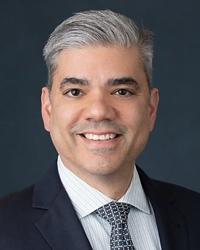
-
Stephen Sisson Lab
The Stephen Sisson Lab focuses on medical education, community outreach and ambulatory care. We recently demonstrated concurrent validity between performance on an ambulatory curriculum, the Internal Medicine In-Training Examination (IM-ITE) and the American Board of Internal Medicine Certifying Examination (ABIM-CE). -
Stephen Sozio Lab
Dr. Sozio’s research focuses on 1) Clinical research related to chronic kidney disease and end stage renal disease, and 2) Educational research in undergraduate and graduate medical education.
The Sozio lab pursues work related to stroke, cognitive impairment, manifestations of kidney disease, and systematic reviews on clinical topics, and collaborates on multiple projects with other key investigators. In particular, Dr. Sozio has been an active investigator in the Choices for Healthy Outcomes in Caring for ESRD (CHOICE) Study, Predictors of Arrhythmic and Cardiovascular Risk in End Stage Renal Disease (PACE) Study, Chronic Renal Insufficiency Cohort (CRIC) Study, and work funded through the Agency for Healthcare Research and Quality (AHRQ) and Johns Hopkins Evidence-Based Practice Center. In addition, the Sozio lab performs studies at the UME and GME levels, investing in understanding learners’ mentorship, research, and transitional experiences.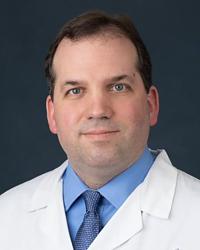
-
Steve Cohen Lab
Research in the Steven Cohen Lab focuses on pain—including fibromyalgia and neuropathic pain—with many studies investigating the causes and treatment of injuries among U.S. soldiers related to these topics. -
Steven Claypool Lab
Research in the Claypool Lab is focused on defining how lipids and membrane proteins interact to establish and maintain normal mitochondrial function and how derangements in this complex relationship result in pathophysiology. We have demonstrated that yeast lacking tafazzin recapitulates all of the phospholipid abnormalities observed in human patients and many of the mitochondrial defects. Another major project in our lab focuses on the mitochondrial ADP/ATP carrier that is required for oxidative phosphorylation. Researchers are studying how these novel interactions help establish normal mitochondrial function, the biochemical details of these associations, and whether disturbances in these assemblies can contribute to mitochondrial dysfunction. -
Steven Frank Lab
Research in the Steven Frank Lab focuses on processes to improve blood use and to avoid blood transfusions for patients who do not want to receive blood or blood products. Processes include autologous hemodilution and cell salvage, and treating or averting anemia pre- and post-surgery. Other lab studies have focused on blood conservation, bloodless medicine surgery, the regulation of body temperature during surgery and methods of preventing hypothermia during surgery.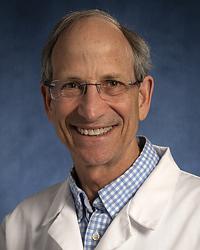
-
Steven Levin Lab
Research in the Steven Levin Lab focuses on chemical neurolysis, epiduroscopy (and training for physicians), opioid administration, and the use of alternative therapies for pain management. In collaboration with the American Society of Law, Medicine and Ethics and with funding from a Donahue Foundation Grant, we study social and ethical considerations in pain management. We have also been involved in clinical trials of novel analgesics.



